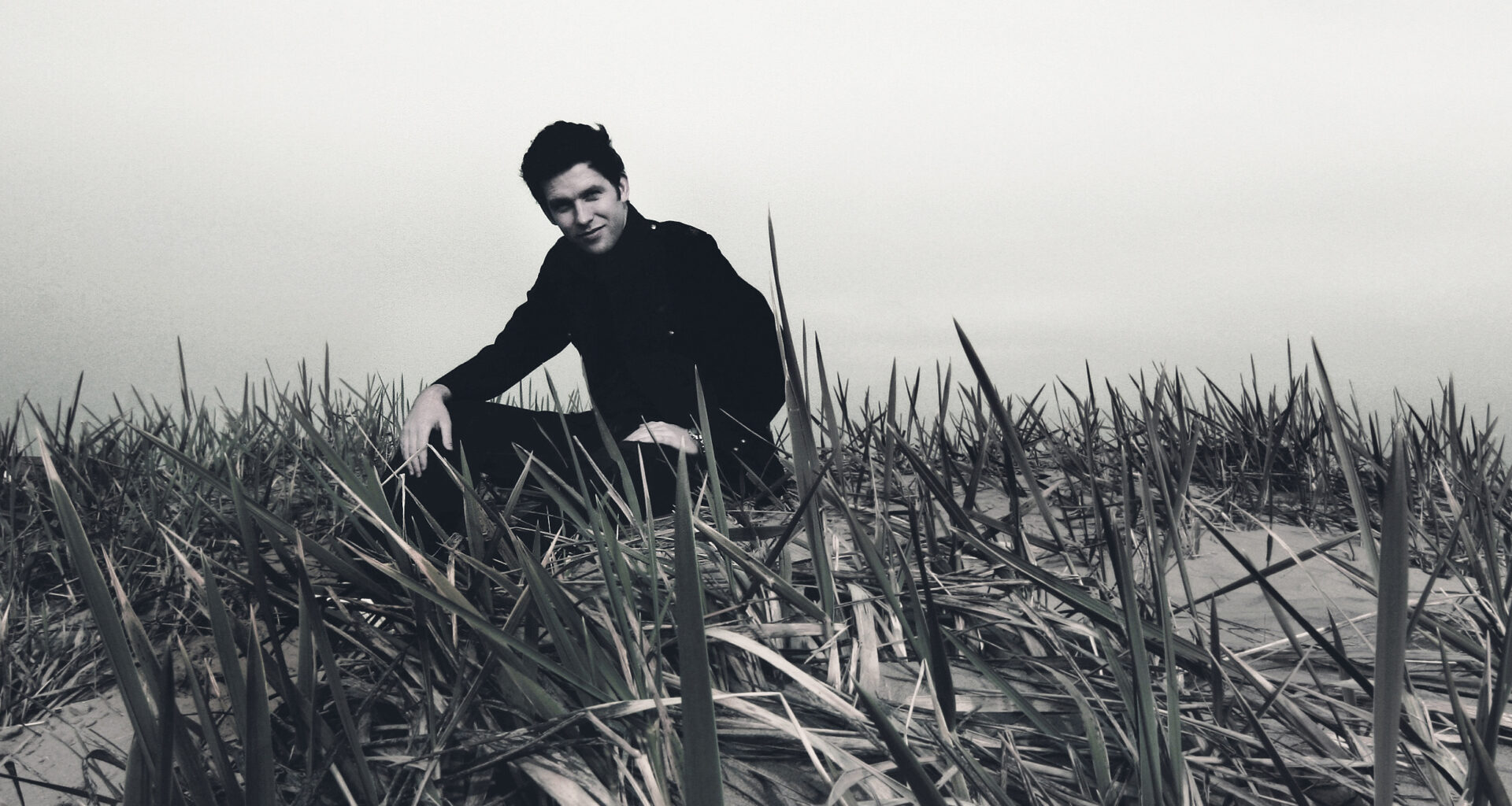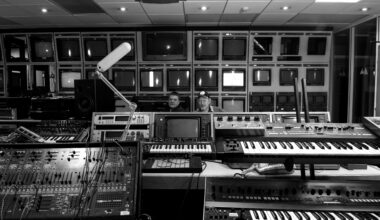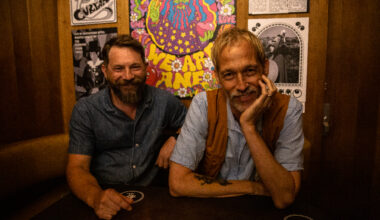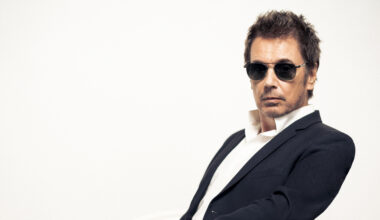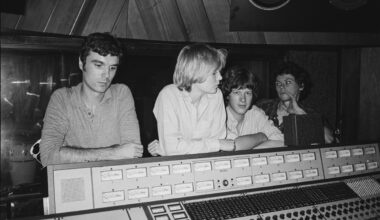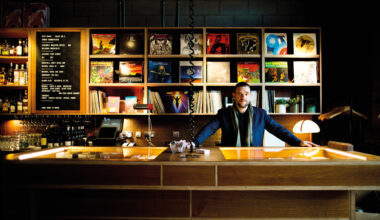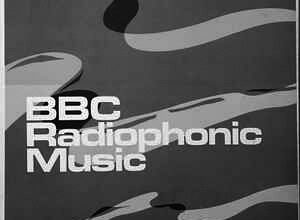The landscape of the north-west of England is at once rolling green hills and stark man-made skyline. Hailing from Widnes, Baltic Fleet draws Inspiration from these surroundings to create a different kind of escapism
Paul Fleming’s induction to live music was one of contrasts. “The first concert I went to was Paul McCartney at the Liverpool docks, and then later that week I went to see 808 State. A funny mix of great melody and songwriting from McCartney, and then this harsh, industrial sound from 808 State,” remembers Fleming, aka Baltic Fleet.
This introduction to live music says a lot about the remarkable Baltic Fleet records he makes in his bedroom and fleshes out in the studio with a full band. The man from the town of Widnes, just outside of Liverpool, creates instrumentals glimmering with precipitous synths, rich with buoyant melody, yet bristling with gritty live drums and an astringent electro low-end. A conflict between dark and light, the organic and man-made, fuels Fleming’s haunting songs, which have been causing a stir since 2008. His self-titled debut was proclaimed an Album Of The Year by Rough Trade, and nominated for a Liverpool Music Award, while the follow-up ‘Towers’ saw him pick up plenty of radio play from tastemaking DJs on BBC 6 Music.
Fleming’s new, third album, ‘The Dear One’, is an emotive work of art that further explores his fascinations with nature and industry, and how they contrast with and feed into one another. It’s an invigorating meld of star-bound kosmische tones and grounded rhythms. Whereas his debut had a prickly post-punk edge, and ‘Towers’ hinted at a love of motorik beats and the dank bass of New Order, ‘The Dear One’ puts electronics to the fore.
On ‘Sheriff Full of Blessings Part 1’, synths intermingle and lace together, plangent guitars and bells astride a throbbing 4/4 pulse, while the floating arpeggios of ‘Elizabeth Glue’ give way to marching martial drums, distorted bass and hitherto unheard vocals in a cinematic, enveloping piece.
It’s a disarmingly confident set that sounds more like the output of a seasoned band than that of a DIY producer. It’s no surprise then to discover that he toured as a keyboard player with Liverpool rock legends Echo & The Bunnymen for six years. Fleming was rocketed from obscurity to playing live in front of the biggest crowds in the world.
“We were supporting Coldplay at the Manchester Arena, and then at London’s Earl’s Court. Suddenly I’d gone from playing in bands with my mates to a couple of hundred people to doing shows in front of 10,000, 15,000, and all the big festivals. I had to learn quick. It was like doing your apprenticeship.”
Fleming’s dad was a keyboard player in 1960s pop group Mark Peters And The Silhouettes, and did session work for Cilla Black and The Merseybeats. He put a keyboard in his son’s room from an early age. Fleming was 12 when he got his Yamaha DX7 synthesiser (which he recalls was “quite a hard synth to learn to programme as a first proper keyboard”) cementing an early obsession with electronic sounds.
After stints in bands, Fleming decided to go his own way. He got into dance music like Chemical Brothers and Daft Punk, he discovered Düsseldorf heroes Neu! and ambient godfather Brian Eno through touring with The Bunnymen. He developed a love for Krautrock, expressed today through his adoration of acts such as Tangerine Dream and Can.
He credits Echo & The Bunnymen’s guitarist Will Sergeant in particular for helping kick-start the production of the first Baltic Fleet record.
“Will helped me on the first album,” he says. “He played a massive part in opening me up to lots of different types of music. I found new sounds and new ways of looking at things.”
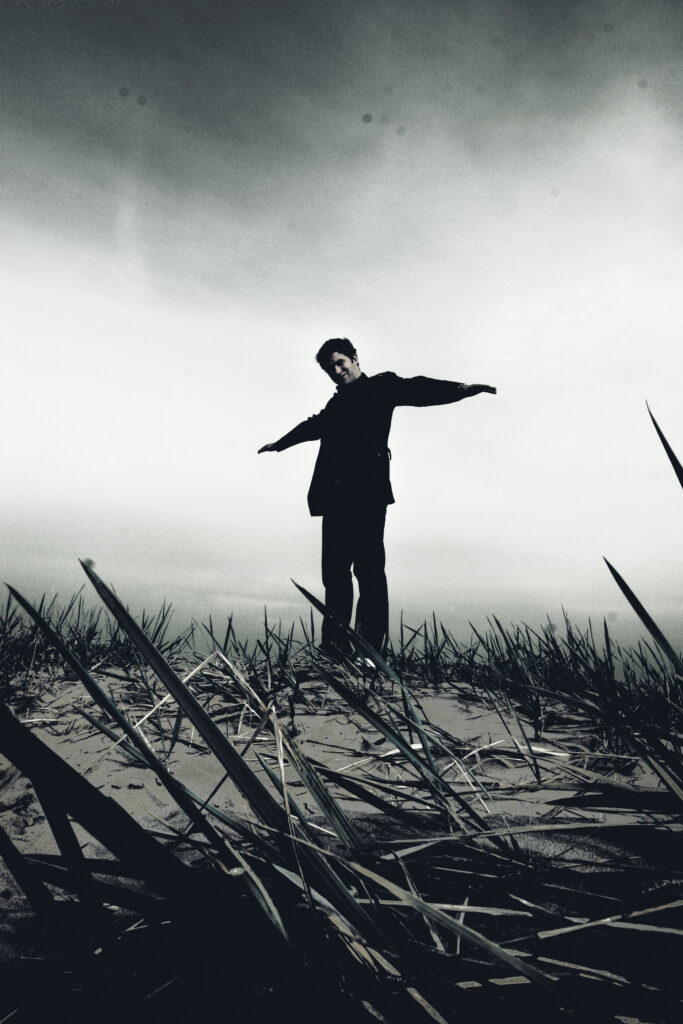
On tour, Fleming developed a theme for his first album. ‘Baltic Fleet’ was an aural travelogue by turns moody and majestic, inspired by the destinations and landscapes he fleetingly experienced. The idea of a central theme has carried through each of his albums since.
‘Towers’ focused on the bleak industrial backdrop of the factories and power stations of his north-west England surroundings, while ‘The Dear One’ is the opposite, a celebration of nature and greenery influenced by his recent move into the Lancashire countryside, and also by a diary he found in his village.
“I walked to the top of Rivington Pike, it’s the highest peak around here. When I got there I could see Liverpool, I could see the power station 30 miles away in Warrington, where I’d made ‘Towers’. So there was a link through the landscape. I feel like I need to be near green things, and open space, so that helps.
“Then there was a diary I discovered in a church. It was written by this guy from the 1800s, he’d built the village up, got a school built, loads of houses, and he referred to his wife as ‘The Dear One’ through his diary for a couple of decades, though didn’t name her until the last page. I suppose the mix of the environment, the diary, the names and the places, it just fed my imagination. I made my own world within this very limited set of things.”
Despite his move away from concrete, steel and smog, the harsher electronics and motoring beats that define Baltic Fleet’s work are never far from the surface. Even in the bucolic scenery, the factories are still visible, viewed from a hilltop. While he’s escaped to nature, the industrial can’t help continue to figure in Fleming’s music.
“It’s never far from the backdrop of what was the industrial revolution,” he says. “There was a place I was going, with a nice lake, beautiful countryside. I found out it was the site of Richard Arkwright’s first steam-powered mill. What I thought was beautiful countryside was a big link back to all that industry I had come from.”
It’s this dichotomy that’s not only present in the music of Baltic Fleet, but drives it, just like the sounds that emerged from Sheffield and Detroit in the cities’ sonic salad days.
“I grew up in Widnes, where it’s normal for you to see a monstrous power station or to drive past a mile of factories where plumes of smoke are coming out. There are all sorts of smells and sounds. It’s just normality. You grow up with escapism in mind. You want to rebel. It’s a bit of a wasteland, where you’ve got to find hope somewhere else. Whether that’s in the cultural places in the cities near me, or getting out to the coast or the country. It’s striving against that. And then… the sound almost embraces the industry.”
Unlike many other electronic artists, Baltic Fleet avoids sequencers. He eschews pre-programmed beats, and always plays riffs and keyboard passages by hand, a means of putting humanity back into the music-making process.
“The title track ‘The Dear One’ sounds like it’s been programmed, but it’s been played live,” he explains. “I play those lines in and get them so tight and so robotic that they almost sound like a sequence, but it’s a manual process. Then I’ll lay over the drums played on a Moog, but played by finger.”
Not only does this give him a greater connection to the music, it also ensures no one can copy him.
“I did read Flying Lotus say once that no one could copy his groove, because it was him, and no one knew his method. The way I put together lines and songs, making it all live, no one can recreate that particular groove, whether it’s just in front of the beat or just behind the beat. There’s a uniqueness about that.”
With each release, Baltic Fleet’s notoriety has grown. Though he’s had the patronage of Echo & The Bunnymen, most of his success has been achieved through word of mouth, his records released through the small independent Blow Up label. It’s their nurturing support, he says, that allows him to maintain his DIY attitude and the integrity of his music.
“Creatively they gave me a lot of freedom. They kept letting it build. It’s a great rapport. I’m happy with where Baltic Fleet’s got to, with three albums. It’s all about putting that marker down, putting a legacy there, being allowed to be creative.”
It’s in the live realm that Baltic Fleet really sets sail and ‘The Dear One’ sounds as if it will be immense experienced live.
“When we play live, it gets a lot heavier,” says Fleming. “You add the guitars and the bass and the drums and it just goes up a notch.”
Playing live is where this singular artist really gets to demonstrate his mastery of the machine, while proving he is human after all.
“I’m looking to do as much as possible live to show that if there’s any difference with what I do, it’s that there’s a lot of playing involved. It’s not drawn into a computer, it’s played. That can be a different experience to the listener, hearing sounds crafted and played live. It’s a different approach to a lot of electronic producers.”
‘The Dear One’ is out on Blow Up
